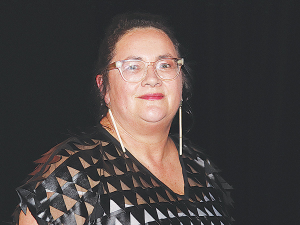Unlocking Māori agri-economy potential
Opportunities for Māori are there for the taking if they scale up their operations and work more closely together.
 Te Tumu Paeroa chief executive Charlotte Severne says Māori want to help reduce agricultural emissions, but rural communities must thrive for this to happen.
Te Tumu Paeroa chief executive Charlotte Severne says Māori want to help reduce agricultural emissions, but rural communities must thrive for this to happen.
In an unusual move, the Māori Trustee and chief executive of Te Tumu Paeroa Dr Charlotte Severne says she'll be making a submission on the Government's agricultural emissions proposals.
Severne administers as trustee or agent for approximately 1,800 Māori Land Trusts and other Māori entities. This is about one third of all Māori Land Trusts. Te Tumu Paeroa is therefore effectively a major Māori land owner.
Speaking exclusively to Rural News at the recent Ahuwhenua Trophy Awards she noted that the pressures on the sheep and beef sector now are real and she wants to see the rapid development of good well-qualified leaders. Severne is concerned about the way Māori are treated by some government departments.
"I believe that big parts of government don't understand Māori land. They think we are group of farms that are doing really well, whereas - in fact - most Māori land is on a lease portfolio and in small parcels," she told Rural News.
"Yes we have really great big farms, but a lot are small steep support farm and we are not being categorised well."
Severne says many Māori farms are disadvantaged - a fact borne out during the floods on the East Coast of the North Island in the middle of the year which saw many Māori farms over represented in those badly damaged by floods.
She says the hype and celebration of the Ahuwhenua Awards, while great, often blinds people to the reality of Māori farming.
"We are not characterised well by this government," she says.
Severne says Māori want to help reduce agricultural emissions, but she wants to see rural communities thrive and says that will be the key element of her submission.
Additional reductions to costs for forest owners in the Emissions Trading Scheme Registry (ETS) have been announced by the Government.
Animal welfare is of paramount importance to New Zealand's dairy industry, with consumers increasingly interested in how food is produced, not just the quality of the final product.
Agriculture and Forestry Minister Todd McClay is encouraging farmers and growers to stay up to date with weather warnings and seek support should they need it.
The closure of SH2 Waioweka Gorge could result in significant delays and additional costs for freight customers around the Upper North Island, says Transporting New Zealand.
OPINION: The year has started positively for New Zealand dairy farmers and things are likely to get better.
Ministry for Primary Industries (MPI) Director General Ray Smith believes there is potential for an increase in dairy farming in New Zealand.

OPINION: If the hand-wringing, cravat and bow-tie wearing commentariat of a left-leaning persuasion had any influence on global markets, we'd…
OPINION: With Winston Peters playing politics with the PM's Indian FTA, all eyes will be on Labour who have the…